Magazine
A Year of Improvements: Planning, Design & Construction in Central Park

Central Park is always changing, and thanks to the Central Park Conservancy’s Planning, Design & Construction team, it gets better every year. Whether we are improving access or rebuilding infrastructure, the Conservancy works year-round to preserve the Park.
As we kick off December, we are taking a look at some of the projects from the past year that have helped make the Park more beautiful and accessible for everyone.
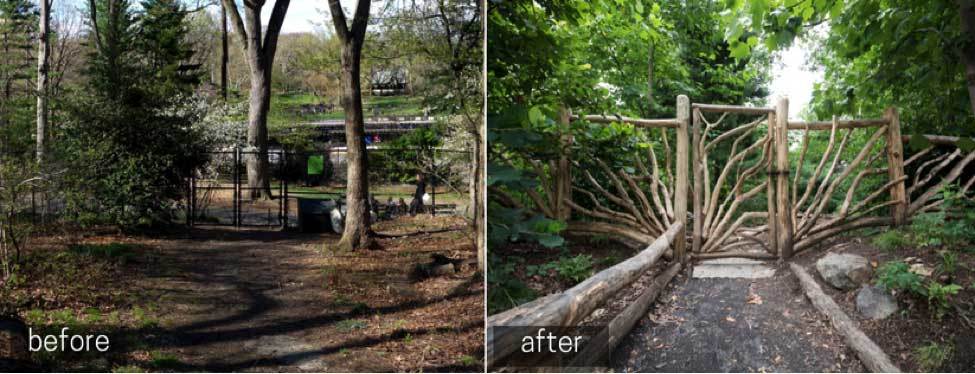
Hallett Nature Sanctuary
At the southeast corner of Central Park is the four-acre Hallett Nature Sanctuary, a peaceful haven just feet away from some of the Park's busiest paths. This woodland area was closed to the public in 1934. While intended for preservation as a bird sanctuary, it became overgrown with invasive species.
In May 2016, after years of dedicated restoration, the Hallett re-opened to the public for the first time in over 80 years. Since then, an estimated 10,248 people have enjoyed this “well-kept secret of New York City.” New rustic enhancements in the Hallett Nature Sanctuary include a scenic overlook on the sanctuary’s promontory and a spectacular entrance gate (pictured). Carved from durable black locust timber, the gate now provides a warmer woodland welcome to thousands of annual visitors.
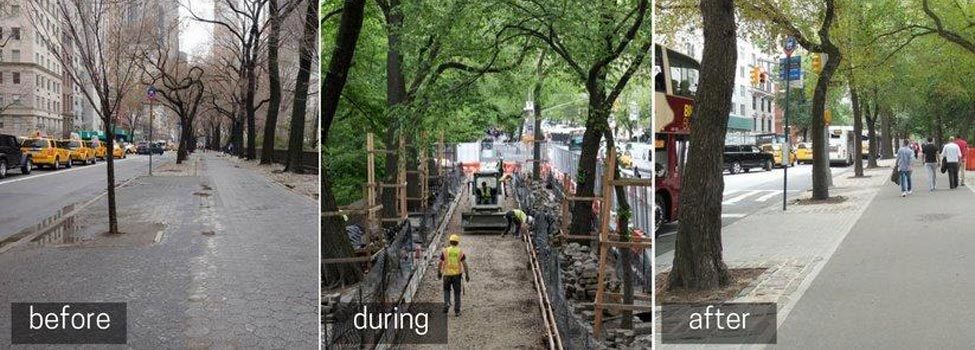
Fifth Avenue Perimeter
Have you noticed that the sidewalk along the southeast side of the Park recently got smoother? Many people don’t realize that the Conservancy is responsible for maintaining the Park’s six-mile perimeter. This fall, a comprehensive reconstruction of the walkway from 60th to 65th Street was completed to restore the perimeter’s historic character. As part of the project, the Conservancy replaced the existing pavements and curbs, reconstructed pedestrian ramps, and improved the entrance just outside the Arsenal and Central Park Zoo. Check out our live video from earlier this year showcasing the enhancements.
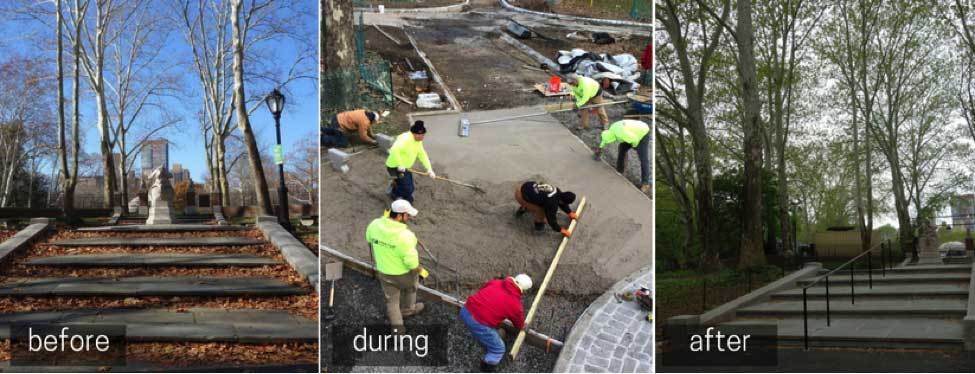
Rumsey Playfield Landscape
If you’ve ever visited Central Park to attend SummerStage or another event at Rumsey Playfield, you’ll appreciate the recent renovations to its surrounding landscape. The area received an infrastructure upgrade this year, including installation of new irrigation and lighting. The Conservancy also rebuilt the plaza surrounding Mother Goose by repaving it with a distinctive pavement, restoring the staircases, installing handrails, and replacing benches.
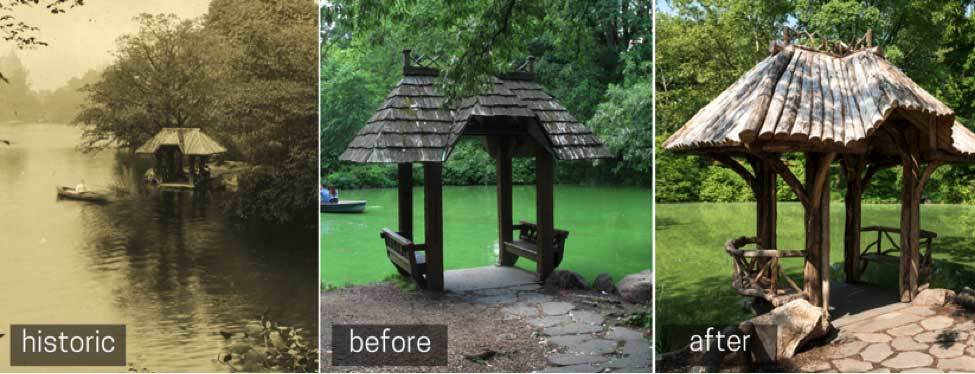
Lake Boat Landings
It’s never been easier to travel back in time and relax on the shore of Central Park’s breathtaking Lake. Thanks to our Planning, Design & Construction team, visitors can now experience the Park’s 19th-century charm at five newly installed boat landings, each offering their own distinct vistas.
As part of the Park’s original plan, these boat landings served as scenic lookouts and docks for recreational boaters. Intended to complement the surrounding scenery, each landing had a unique design. This year, the Conservancy replaced former deteriorating iterations with new landings that represent more faithful recreations of Olmsted and Vaux’s original rustic and Victorian designs. To celebrate their completion, we took a video tour of the Lake from inside a vintage Elco boat, the same model used to shuttle visitors across the lake 100 years ago.
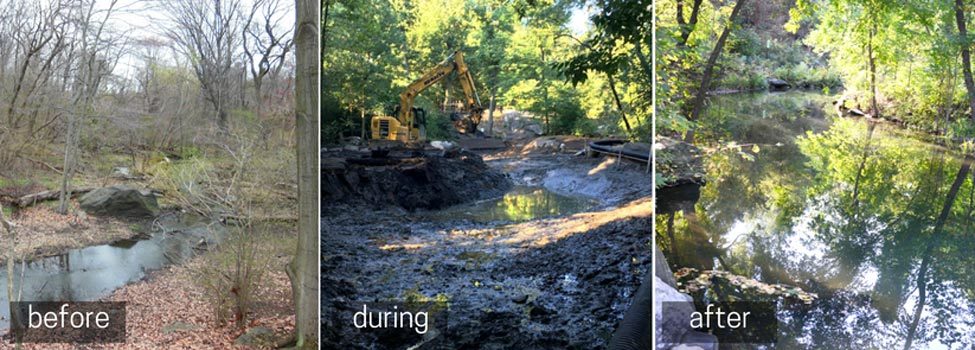
The Ravine
Frederick Law Olmsted and Calvert Vaux envisioned the Ravine, one of three woodland areas in the Park, as an urban escape where visitors—particularly those who could not afford a vacation away from the City—could come and appreciate the wonders of nature. Though it was intended to resemble the wilderness of the Adirondacks, the Ravine is completely manmade.
As part of a comprehensive effort to revive the Park’s woodlands, the Conservancy completed a major restoration of the Ravine that included rebuilding worn paths and restoring the Loch. Our in-house crew will construct rustic seating and rails for a scenic overlook to be installed this spring.
As we continue to make improvements, our work is never truly done. Central Park requires constant care, not only from the hundreds of Conservancy staff and volunteers who look after its landscapes and structures, but also from visitors like you. Click here for more information on how to enjoy the Park responsibly, and join us in becoming stewards of Central Park.



